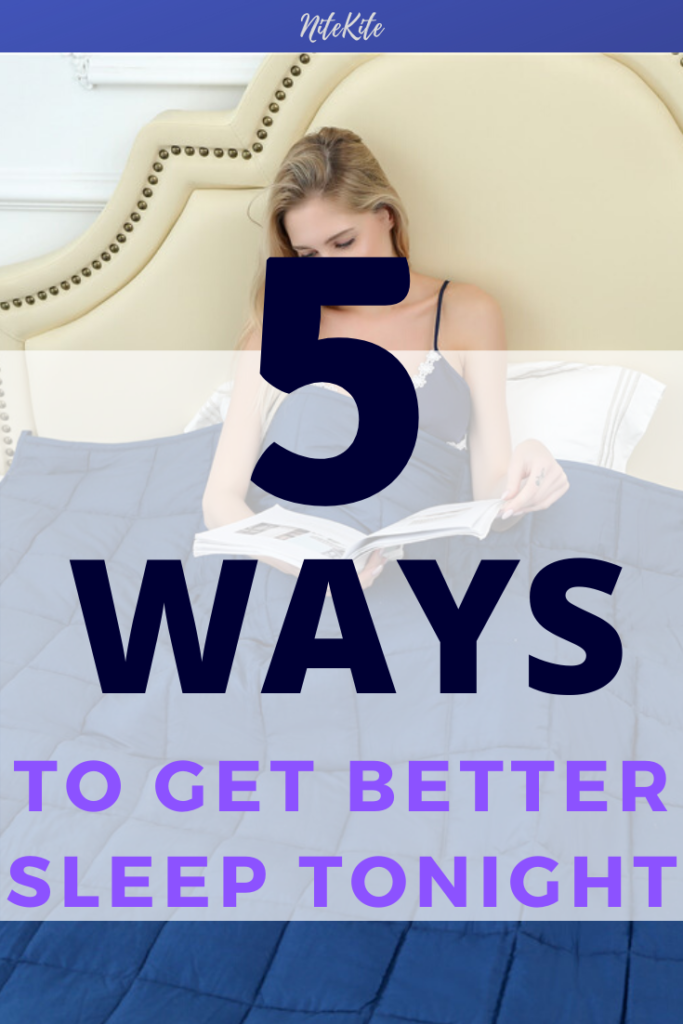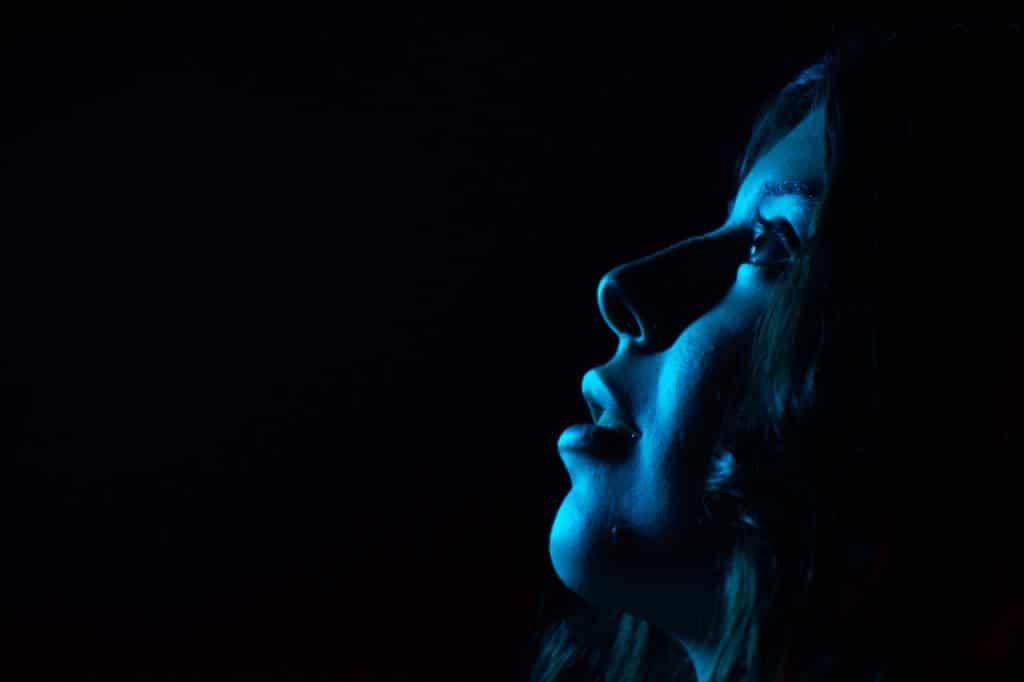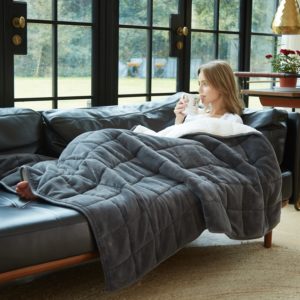“A good night’s sleep is just as important as regular exercise and a healthy diet.” – Healthline.com
It’s been said that overall sleep quality has experienced a notable decline over the last few decades; this is unlikely to come as a shock to anyone living in the 21st century!
Let’s jump right into it.

There are an increasing amount of studies that are going into depth around the best sleep practices. Scientific breakthroughs have let us know more about sleep, but due to the “internet age” constant social media and “now now now” culture, we have been able to do little more than just read the information without acting on it.
Who Wouldn’t Want To Improve The Sleep They Get?
A good nights’ sleep gets us through the day feeling more refreshed, more productive and even, more confidently.
But it could always be better right? I mean, doesn’t it get annoying waking up to an alarm?
For many of us that loud noise in the morning just ruins the entire previous 8 hours (in most cases 5-6 hours, realistically)
What we do to ruin our sleep quality:
BEDTIME PHONES > BLUE LIGHT > CIRCADIAN RHYTHM DISRUPTION
The 5 Ways To Improve Sleep
Increase Daytime Exposure To Light
At first this sounds counter-intuitive but is actually very important. Our body clocks natural have a rhythm (circadian rhythm to be exact) and no matter how far we get away from nature with the speed f technology – our bodies still react to nature in ways we have not evolved to bypass. We’ve lived on the Earth for 100s of thousands years, technology in this form has been around for less than 100 of those years, after all.
Because of this, we have to focus on getting as much daytime lighting as possible. “It affects you brain, body and hormones”. One study managed to show that 2 hours of natural light exposure increased sleep efficiency by up to 2 hours.
Optimise Your Sleeping Environment with Sounds and Scents
The bedroom should represent tranquility and we need to rethink how we use the bedroom in this regard. Too often its left as the place to get that last minute work in, make to-do lists and address issues for the next day, rather than be the place of calm and relaxation.
Air Quality

How many of us can say we think about air quality in side our own homes? The truth is that’s exactly where we should be worried about air quality – as it’s the only place where we can actually control it ourselves!
With smart homes becoming the norm as we accelerate into a future where everything can be controlled with the flick of a switch, and an object in the house is either on or on standby, the same applies to Air Purifiers. These can be used to cleanse he air around us while we sleep and even add our most relaxing scents into our immediate environment.
Temperature
This study showed heat had more of an effect that noise on sleep quality.
In summer it’s too hot for covers in winter it’s too cold. But most of us only have one duvet, year round. Why? Try a weighted blanket in the winter and a cooler thinner option in the summer.
Quality of sleep is very sensitive to changes in temperature. Regardless of the external changes in temperature, your body heat peaks in the evening, before dropping to its lowest level while you sleep between 16 and 18 degrees – around 1 to 2 degrees lower than while your awake.
The first thing you should do is get a thermometer to easily monitor your room temperature, and you can keep it at the steady range that works best for you individually.
As a general rule, over 24 degrees is where most people get restless and experience night sweats.
Lights

Phones, TVs, Ipads you name it, it emits light that is steadily disrupting whatever sleep you’re trying to get. Its recommended you shut off all unnatural lighting at least an hour before getting into bed.
Contrary to popular belief natural lighting can also become a problem for many sleepers. Blue lighting from artificial light sources is not the only thing to blame. Too many bedrooms have blinds/curtains that do not adequately block out light completely and will find that they are woken up earlier in the summer months due to sunlight getting through the screening earlier than they would’ve wanted.
You can even get smart lighting options, including smart light bulbs) that allow you to control the brightness in your room with a corresponding app – meaning you don’t have to get your whole house rewired. Which leads into the next point…
Melatonin
Melatonin is the hormone which is sensitive to light exposure, and is released to help the body relax when it detects darkness – which is tied in again, with our circadian rhythm. It is not released sufficiently when we are exposed to blue lights before bed – from screens and artificial light sources.
There apps which are designed to reduce the blue light emitted from screens to work with our incessant need to have a screen on rather than punish us with lectures about turning off our Netflix. If you can’t beat them, join them right?
Luckily for you there are many options when it comes to increases melatonin secretion
- Wear an eye pillow before sleeping
- Get the app F.lux for desktop and mobile
- Take a melatonin supplement found online or local herbal shop
Exercise, but Early
This study found in the US National Library of Medicine archives successfully showed that exercise had offered more benefits than drugs when it came to patients with severe insomnia.. Exercise reduced the time taken to fall asleep by up to 55%! Additionally it added up to 41 minutes of quality sleep.
Many people say they like to exercise late at night as this helps to keep them tired right before getting into bed, leaving less time for mindless thoughts or daydreaming instead of well, actual dreaming
An besides that, exercise is backed by science as one of the best ways to improve overall sleep as it promotes rest periods by getting your body working as it should.
But the main problem is the timing. Of course we go to work, we have errands to run, we have lives to live. Often leaving the most dedicated of us to fit in exercise rias the last activity of the day, I mean some gyms these days are 24 hours – people are actually beginning their workouts at midnight. The state of the world ‘ay.
Well, you’d be happy to know that you can now say” it’s too late to go to the gym” in confidence from now on – science doesn’t recommend it as it is too stimulating and increases the presence of adrenaline and epinephrine in the body. While not detrimental to health, it could have waking effects on some members of society.
Avoid Drinking Liquids Before Bedtime
Yes this doesn’t just mean alcohol and fizzy drinks/sodas – all drinks including water! Of course the benefits to drinking enough water each day are numerous, and a lot of us can’t sleep with that final green tea before bed. The thing is filling up on liquids before bed increases the chance you’ll wake up some time around 3am wondering why is so dark outside.
Excessive urination at night, while not really a medical issue, it’s an issue none the less and that disruption to your sleep cycle especially during the key phase of your sleep, is harmful in the long run to your mental state and will obviously affect how you approach the next day.
Think of it like this; the body requires 8 hours sleep and you will be getting 4 hours sleep, twice (or even, 3.5 hours twice if you consider the part where you’re awake and running through the list of things you have to do in the morning for no apparent reason.) – which is just not the same thing – as the body will restart each phase of the sleep cycle for the second sleep! Pretty uncomfortable.
In short try to leave at least a 2 hour gap between the last drink and bed time, so you can take a leak, so to speak, before actually hitting the hay.





